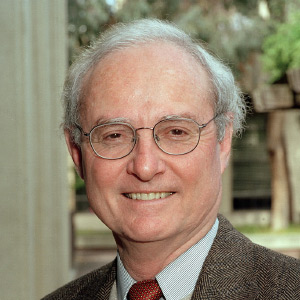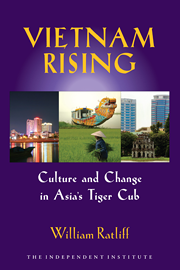Most Latin American leaders slammed the 47-year-old U.S. embargo of Cuba at the mid-April Summit of the Americas in Trinidad. Fidel Castro hadn’t been invited, so he ranted about the “blockade”—and President Obama—from Havana.
This all sounds familiar, but there is an important new twist today. The Obama team, and shifts in Cuban American opinion, give hope that we may finally move toward eliminating the embargo—if we can jettison unrealistic demands and expectations.
The embargo made sense during the Cold War, but no longer. A majority of Americans and Cubans now oppose it, including a majority of Cuban dissidents in Cuba and Cuban-Americans in Miami. Only the U.S. Congress still won’t move as a body, bound as it is by inertia and domestic political calculations. Alas, its role is critical since the passage of the 1996 Helms Burton Act, which codifies the embargo.
How has the embargo failed? It has not brought down the Castro brothers, advanced democracy, freedom, human rights or prosperity in Cuba, or gotten compensation for Americans whose assets Cuba seized decades ago. It largely denies Americans the freedom to travel to Cuba, or to trade freely and otherwise interact Cubans on the island.
And in recent decades it has given Fidel the scapegoat he needs—us—to excuse his economic utopianism and brutality.
Supporters of the embargo see it as an expression of America’s moral indignation at Castro’s brutal policies. By limiting the flow of dollars to Cuba we deny some funds to Cuban security forces, as they argue, but we simultaneously withhold support for the daily lives of the Cuban people.
For twenty years the embargo placated the very noisy Cuban American community in Florida, but by late 2008 even a majority of Cuban Americans, according to a Florida International University poll, had turned against it. It isn’t that Cuban Americans are going soft on Fidel, but that a majority finally see or admit that this policy is more harmful than positive to its own interests.
And it is harmful to U.S. interests as well, which ought to be our primary concern, alienating the Hemisphere and the world as a whole while having only negative impacts in Cuba.
The Cuban American National Foundation, long the epicenter of anti-Castroism in the United States, recently admitted that for many years the embargo has been “little beyond posturing for domestic electoral purposes.”
How can we best end this policy with a minimum of confrontation, frustration and delay?
The only way we can keep full control of the process is by lifting it unilaterally.
The State Department recently lauded the normalization of relations between Turkey and Armenia. “It has long been and remains the position of the United States that normalization should take place without preconditions,” State said. So why not between the United States and Cuba, where the pain of the past hardly equals that of Turkey and Armenia?
Is Castro a brutal dictator? Sure, but his atrocities are hardly worse than those of Robert Mugabe, the thug who rules Zimbabwe, a country we recognize.
The United States demands more concessions from Cuba for recognition than from any other country in history. In fact, the Helms Burton Act is blatantly imperialistic, in the spirit of the Platt Amendment to the Monroe Doctrine a century ago, which poisoned U.S. relations with Cuba for decades.
Negotiations without preconditions, which Obama says he supports, are the next best though potentially deeply flawed approach. Informal discussions between U.S. and Cuban diplomats already are underway. If Cuban pragmatists, including President Raul Castro, can over-ride Fidel’s anti-American passions, perhaps the United States, if we are very flexible, and Cuba can work out a step-by-step, face-saving plan to reduce tensions and normalize relations.
The Obama administration got off to a positive start by dropping the misguided 2004 Bush administration restrictions on remittances and travel to Cuba, but then in public statements fell immediately into the trap of previous administrations by demanding “reciprocity.”
This seems a just and reasonable demand, but in the propaganda-filled public arena it is a game-stopper. In practical terms, the public demand for reciprocity hands Cuba a veto over U.S. policy, which it has used before to short-circuit emerging U.S. moderation. Cuba will never make tradeoffs on important matters so long as the core of the basically flawed embargo remains in place.
Lifting the embargo would unleash a new dynamic and put full responsibility for Cuban rights violations and economic failure squarely on Cuba’s leaders where it belongs.
We can hope, but can’t guarantee, that ending the embargo will encourage real domestic reforms in Cuba. We can guarantee that it will rid us of a demeaning, hypocritical and counterproductive policy.
Why and How to Lift the U.S. Embargo on Cuba
William Ratliff (1937–2014) was a Research Fellow at the Independent Institute and Curator of the Americas Collection at the Hoover Institution.
Comments
Before posting, please read our Comment Policy.








